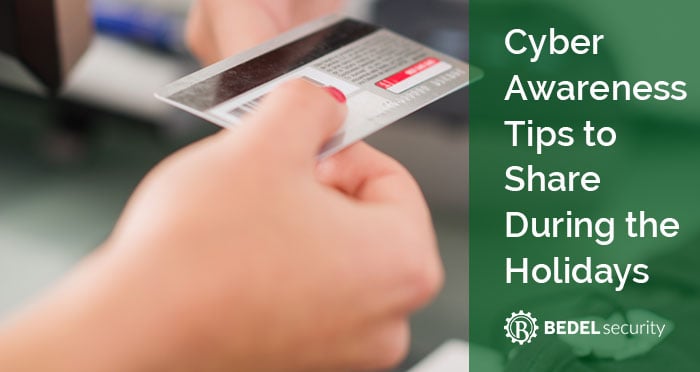
As I'm sure you all know the holidays are typically equated with big spending. Everyone is buzzing around in search of the perfect gifts. They're opening their wallets and pulling out cash or swiping their cards managing their accounts from their computers or their phones. Often this can lead to a love-hate relationship with their banks and credit unions. But you know what might just make them breathe a sigh of relief? Knowing that their financial institution has their back. That's why, even though it's the most wonderful time of the year, we need to remain always vigilant to protect not only ourselves and our customers.
I'm sure you all have been training your staff on phishing emails and social engineering, but how much do your customers know? Cyber Monday has some of the biggest sales of the season. Customers are receiving emails left and right on new deals, purchase confirmations, and package delivery statuses but can they tell if they're purchasing from a reliable site? What if they get an email asking them to update their card information because it didn't process correctly? A headache for your customers can really mean a headache for you if their information becomes compromised. So here are some tips to pass along to build your relationship with your customers and save yourself future headaches that way we can all enjoy the holidays season.
Verify you're doing business with reputable vendors.
- If a website uses security measures like encryption, they must have a certificate from their site or host. This will be verifiable two ways:
- A closed padlock icon typically found in the status bar of your browser (exact location can vary depending on which browser you use.)
- A URL that begins with https: instead of just http:
- The US-CERT has more great information on this you can find here.
Be cautious of any calls or emails asking you to confirm sensitive information.
- Try using an out of band method of contact the company back to verify they are who they say they are. For example, if they email you try calling their support number or vice versa. If you want more information on the out of band method Techopedia does a good job further explaining it here.
- If you can't get ahold of anyone at least check any links that the email contains. (You can read our post on how to do that here.)
- If you're unsure of what phishing emails and social engineering is you should check out Wombat Security Technologies' free resources here.
Don't keep sensitive information accessible on your devices.
- Phones, tablets, and laptops can easily be stolen. Make sure any apps or programs that contain sensitive information like passwords, birthdays, credit card information, etc. require multiple factor authentification and encryption.
Keep an eye on your statements.
- Know where your money is going and if you see something out of place take action. First, talk to anyone else on your account to make sure it wasn't something they purchased. If not call your bank (be sure to have information ready for who you want them to call and what the right process is for potentially fraudulent charges.) Sure it may ruin a surprise present but it could also save you a lot of money in the long run.
Too often customers panic thinking if they don't get whatever issue sorted out immediately their package won't arrive on time. So they rush to try to fix the problem throwing caution to the wind. Before that ever happens, let's show them these steps they can take and remind them we have their back.
